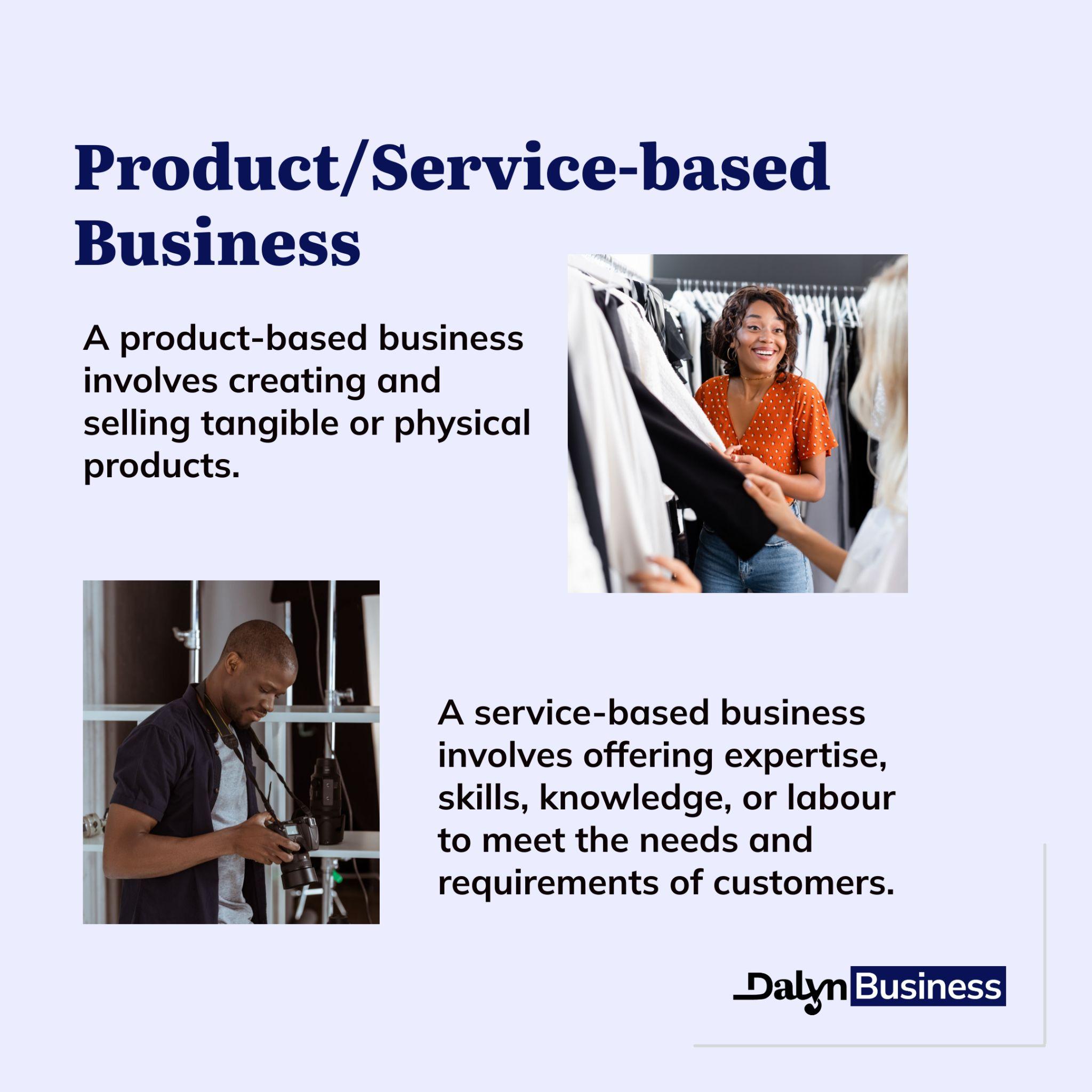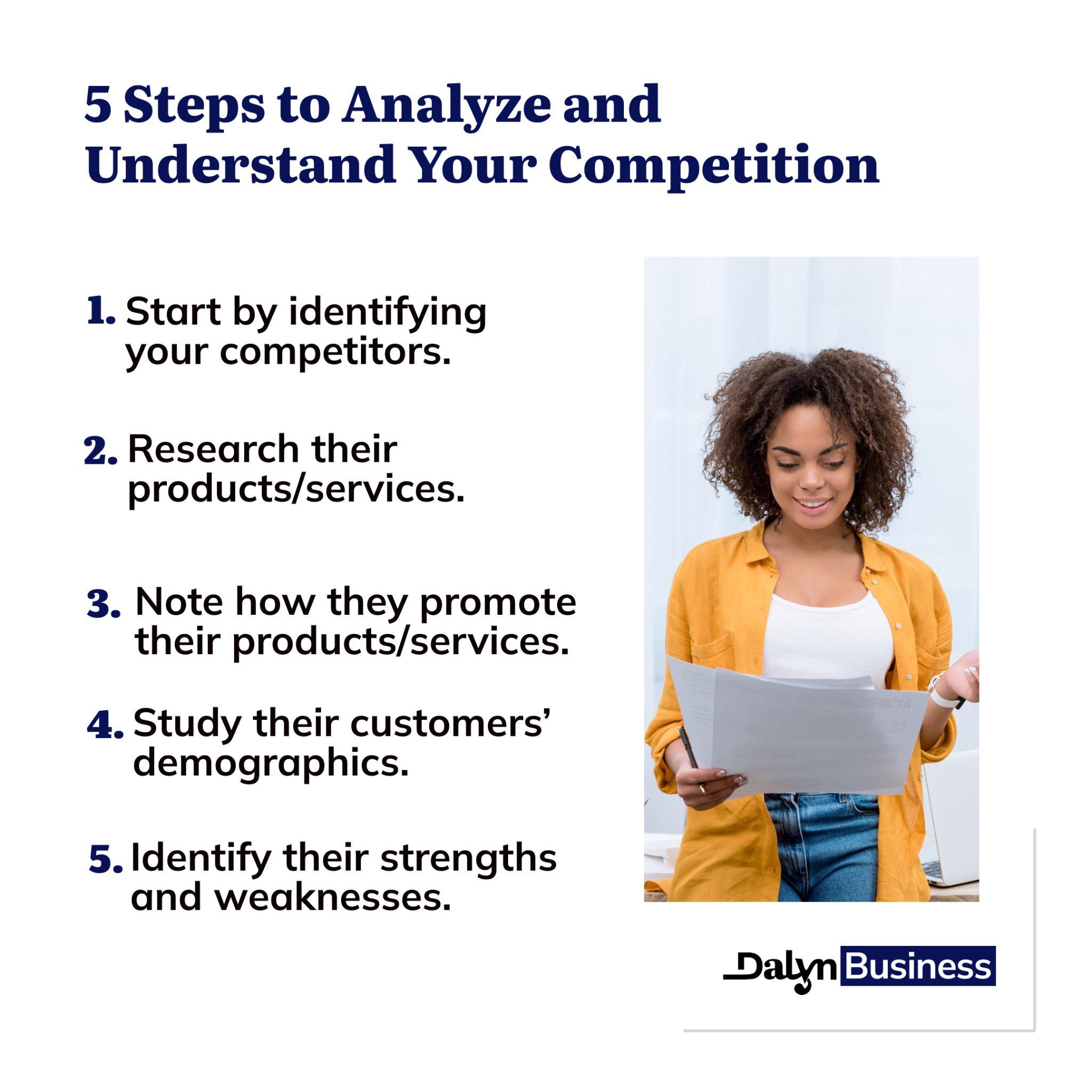As an aspiring business owner, choosing the right business to start is a decision that can significantly impact your future. But the process of finding the right business can be a very challenging task.
There are many business ideas to exploit, and you may already be overwhelmed by the options and afraid of making the wrong choice and incurring a financial loss. You’re also worried about the business succeeding amidst lots of competitors.
However, picking the right business doesn’t have to be so challenging. In this article, you’ll learn the steps to choosing the right business that suits you and aligns with your interests and aspirations. Some of the steps include:
- Considering the type of business to start
- Identifying your passion
- Determining the required skills needed for the business
- Determining the profitability of the business
- Understanding the market demand/potential customers.
At the end of this article, you’ll know how to choose the right business to start.
What is the right business idea?
The right business idea aligns with your interests, skills, market demand, and long-term goals. It should be viable, scalable, and have the potential to generate profit. This means identifying a business that genuinely excites you, brings out your strengths and expertise, and fulfils a need or solves a problem in the market. It should also have the potential to scale and grow as your business expands, ensuring long-term sustainability.
Choosing the right business idea for you is essential for the following reasons:
- It helps you manage your time and resources effectively. Once you start implementing the right business idea, you won’t spend unnecessary time and resources trying to figure out what works and what doesn’t. This is because you would have already established that the idea is right for you.
- It enables you to maximise opportunities. Choosing the right business idea means picking the business that has the best chance of success. By doing this, you can seize new opportunities that come your way.
- It reduces stress. Starting a business is challenging. It requires time, resources, and a lot of personal effort. The wrong business idea can make the whole process much more difficult, and the stress can affect your mental well-being. And in the end, you’ll still not get satisfactory results.

How to choose the right business for you: 9 steps to take
1. Consider the type of business to start
This is the first step to choosing the right business to start. You have to decide whether the business will be product-based or service-based.
Product-based business
A product-based business involves creating and selling tangible or physical products. For example, selling clothes, laptops, cosmetics, and provisions. It also involves sourcing ready-made goods and reselling them. For instance, in Aba in Abia State, a person that makes bags and sells them and the person that buys the bags in large quantities and resells them is in a product-based business.
A product-based business, therefore, offers tangible goods that customers can physically hold, use, or consume.

Serviced-based business
A service-based business involves offering expertise, skills, knowledge, or labour to meet the needs and requirements of customers. Examples of service-based businesses include laundry business, event planning, interior decorations, graphic design, etc.
Service-based businesses often charge clients based on time spent on the service or fixed service fees, rather than selling products with set prices.
Why you need to consider the type of business
- Considering the type of business will help you allocate your resources effectively. A product-based business may need to invest in manufacturing facilities, while a service-based business may prioritize hiring skilled professionals and investing in their training.
- Considering the type of business helps you carry out a comprehensive market analysis. It allows you to identify customer needs, preferences, and demand patterns. This will ensure you offer what aligns with market requirements.
- Each type of business comes with its set of risks. Considering the type of business will help you assess the risks associated with the business.
Note: One business can be both service-based and product-based. For instance, in a hair salon, the tangible products are the hair care and styling products the hair stylist offers for sale. Customers can purchase shampoos, conditioners, hair treatments, and styling tools, which are physical products they can take home and use. On the other hand, the hair salon provides various services such as haircuts, hair styling, hair colouring, and hair treatments. These services involve the expertise of the hairstylists, who use their skills and knowledge to cater to the specific needs and preferences of each client.

2. Identify your passion
Passion is a strong and intense desire towards something. It is a deep interest that motivates and excites you. You naturally feel connected to something you’re passionate about.
It is important to identify your passion when choosing a business idea. Look around to discover areas where you believe you can make a positive impact with your passion and interests. For instance, if you enjoy cooking, you might consider exploring opportunities in the food industry, such as running a restaurant, offering catering services, or even starting a food delivery business.

Also, your passion is not only the things you already know how to do. While your skills and abilities can contribute to your passion, it goes beyond that. It’s something you feel strongly drawn to, even if you haven’t learned all about it yet.
Why you need to identify your passion
- Doing a business that aligns with your passion gives a sense of fulfilment.
- Building your business around your passion can make your work enjoyable.
- Choosing a business that aligns with your passion allows you to showcase your true talents and skills. It can bring out the best abilities in you and make you authentic.
- You’re more likely to stay committed to your business and withstand any obstacle when you have passion for your business.
How to identify your passion
- One way to determine your passion is by reflecting on your interests, values, and what brings you joy. Consider activities that you feel naturally drawn to.
- Trying out different activities can also help you to identify your passion. By exposing yourself to new experiences, you can discover something that captivates your interest that you never thought of.
- Also, pay attention to your emotions. They can provide clues about your passions. When engage in activities that excite you, be mindful of the emotions that arise. These feelings can be indicators of activities you might be passionate about.
- Another way to identify your passion is to determine your skills and strengths. What are you naturally good at? Your passion is often tied to your natural abilities.

3. Determine the required skills needed for the business
When choosing the right business, it’s also essential to determine the skills you have that align with the business and areas where you may need additional support.
Hard skills
Hard skills refer to specific abilities that people gain through formal education, training, or practical experience. Examples of hard skills include cooking, sewing, painting, content writing, web development, health-related certifications, etc.
In the business field, you can demonstrate hard skills through formal education and learning gained from work experiences. These skills can be showcased as achievements, accomplishments, and projects completed in the past. For careers like law and medicine, you need formal training to prove your hard skills. For careers like web development or content writing, you can learn them on your own or on the job, and you can prove your hard skills with a portfolio of work.
So, when choosing a particular business idea, it’s important to determine the hard skills you need for the business. Identify the hard skills you already have that align with the business and the ones to outsource. For example, you might want to start a fashion business where you sew and sell. You may have the design skills but can’t cut and sew. Therefore, you’ll need to employ someone with that skill to work with you or acquire the skill yourself.
Steps to determine your hard skills
- Reflect on your education, training, and past experiences to identify specific hard skills you have developed in various areas.
- Create a detailed list of the hard skills you possess.
- Analyze your work history or experience to identify how you have used the skills.

Soft skills
Soft skills are those interpersonal or social abilities to interact and collaborate with others effectively. They are also the abilities to navigate through different social situations, whether it’s interacting with family members, friends, coworkers, customers, acquaintances, or even strangers. These skills include communication, adaptability, leadership, problem-solving, good team play, and time management.
While hard skills are essential for performing your business tasks, soft skills play an important role in applying those hard skills effectively.
Let’s assume you run a restaurant business and cook delicious food. If you can’t communicate effectively with your customers and manage time, you’re likely not going to be successful. Being able to communicate effectively with your customer, understand their needs, and provide excellent service is vital for building strong relationships and fostering customer loyalty. Thus, the combination of hard and soft skills is crucial for any business.
How to determine your soft skills
- Reflect on your social interactions and communication style to identify the soft skills you naturally exhibit. Identify areas where you excel and feel comfortable in social or professional settings. Do you communicate easily with people or do you find it difficult to hold conversations? Are you always early to complete a task? Are you good at leadership? You will need to assess yourself to determine the soft skills you possess and the important ones to develop for your business.
- Review past performance feedback from people you have worked with before to identify any mentions of your soft skills. It can be a project you handled with others and you were always recommended for always finishing your tasks on time.
- You can also seek feedback from friends, family, colleagues, or mentors about your soft skills.
4. Determine the profitability of the business
To ensure you choose the right business, you need to ascertain the profitability of the business. This refers to the ability of a business to exceed its total expenses and make profits over a specific period.
Why you need to determine the profitability of your business
- Determining the profitability of your business helps you know whether your time and resources will yield a satisfactory return.
- Determining your business’s profitability is important when seeking support from investors or lenders. They assess potential returns and growth prospects before financing your business. Profitability serves as evidence that your business will generate returns and succeed.
- Profitability is the base of business growth. When your business is able to yield profit, you will have the money to put back into the business. You can grow your operations, reach new customers, and create new products or services.
Imagine starting a laundry service business after verifying its viability. Let’s say you started without a washing machine. With time, you make a lot of profit and purchase a washing machine. This means you will be fast to deliver and attend to more customers.

To determine the profitability of your business idea you need to:
- Understand the industry. This will help you to assess the dynamics and challenges of the industry.
- Know the level of demand for the product or service. High demand indicates a higher chance of success and profitability.
- Understand the costs and expenses of the business. Costs and expenses are critical to profitability. You need to be aware of both direct costs which is the cost related to producing the goods or services. You also need to be aware of indirect costs like rent, utilities, etc. Accurate cost analysis helps you set the right pricing and ensure that your revenues exceed your expenses.
5. Understand the market demand for the business
Market demand refers to the total quantity of a product or service consumers are willing to buy at a certain price in a specific market. Knowing the market demand can help inform both current and aspiring business owners about the profitability of a business idea.
Therefore, conducting market demand research before starting a business is important. Market demand research involves gathering data and information about an industry you intend to enter. For Aliko Dangote, the African richest man and the founder of the Dangote group, “If you are going into any business, you must understand the business A to Z.” It will not be wise to start a business because you heard it’s profitable from a friend or a family member. You have to do your research about the business.
Why you need to understand the market demand
- Understanding your market demand helps you tailor your products or services to suit your customer.
- When you understand your market, you will make better decisions. You’ll be able to determine the marketing strategy, product or service features, and best distribution channels to use.
- You also need to understand your market to be able to price your products well. For instance, opening a restaurant business in a student area and pricing a plate of food from 1500 to 2000 won’t be suitable for the students. But by conducting market demand research, you’ll be able to determine the price the students can afford. While some students may be able to pay from 1500 to 2000 for a plate of food, most of them will likely buy a plate of food from 800 to 1000.

How to ascertain the market demand
- Gather information about your target market’s likes, needs, and income level. You can do this by talking to your potential customers. Ask for their opinions through a survey or face-to-face interview. Ask them about what they like and the chances of them buying your goods or services.
- Study businesses that sell similar things to understand the demand for the product and service. Pay close attention to how they sell their products or services and how much they charge and their customer’s opinions. After analyzing this and you find any opportunity they have not taken, tailor your business to that gap.
- Look out for trends in the kind of business you want to start. Look at what is happening around the business, it can be through online platforms, online discussions, and customer reviews. This can still give you insight into the demand of the people.
6. Analyze and understand the competition in the business
What is competition and who is your competition?
Market competition refers to the rivalry between people that offer similar products or services in the same target market as you. When choosing a business idea, it’s essential to understand the competition and plan smart strategies for success. Tony Elumelu, the multibillionaire and Founder of the Tony Elumelu Foundation says, “To be successful, you must understand the dynamics, the distinguishing and competitive factors of the industry you play in and how to disrupt the market.”

Why you need to analyze and understand your competition
- Understanding your competition helps you differentiate your products or services from those of others. For instance, let’s say we want to start an egg supply business after analyzing the competition. We can differentiate our business by offering fresh eggs. Unlike other competitors who simply distribute eggs to retailers, our business might decide a more direct approach by sourcing eggs from local farms. This ensures that the eggs are fresh and of the highest quality, and they will be delivered to customers within hours of being laid. By understanding the competition and recognizing the demand for farm-fresh eggs, our business has successfully carved a niche in the market, attracting customers who value freshness taste in their egg supply.
- Analysing your competition will also help you to know how to price goods. Knowing the value of your competitor’s offerings helps you determine if you can price higher due to unique features or lower to gain a competitive edge advantage.
Steps to analyze and understand your competition
- Start by identifying your competitors. Look for people that do the same business.
- Research their products or services to note their unique features, quality, and prices.
- Note how they promote their products or services. You can check them out online through their social media accounts and advertisements. If they are not present online, you can gather information by visiting their physical stores or talking to customers who have experience with their products or services.
- Study their customers’ demographics. This includes factors like age, gender, location, and income level. Also check the psychographics such as likes, needs, interests, values, and lifestyle choices. Understanding both demographics and psychographics helps you connect with potential customers in a way that truly resonates with them.
- Identify their strengths and weaknesses. Consider their customer satisfaction ratings and areas they might be facing challenges. This will give ideas of opportunities and strategies.

7. Estimate the capital it takes to start the business
This involves determining the total amount of money you’ll need to set up your business. It could take time for your business to generate income once it starts. By determining your capital for both the start-up and ongoing expenses, you can sustain the business until it starts generating profit.
If you plan to get funding from investors or lenders, it’s important to have a clear definition of how much money you actually need. And If you plan to fund the business yourself, determining the capital helps to ensure you have enough money to cover all the necessary expenses.
Estimating the capital needed to start a business is vital for making better decisions about the right type of business to pursue. This estimation influences important aspects of the business such as pricing, sales strategy, and growth plans.
For instance, if the estimated capital falls short of the financial needs for a certain business idea, you might decide to explore alternatives business that are more financially viable with the available resources. On the other hand, if your capital estimate exceeds expectations, it might open up opportunities for pursuing more growth plans or expanding the business into new markets.

Steps to estimate the capital needed to set up the business
- Make a list of all the things you need to start and run your business, whether it’s an offline or online business. This includes equipment, rent and renovation if needed (for offline businesses), utilities, raw materials if it’s a product-based business, and salaries if you will need extra hands (for both offline and online businesses).
For instance, in a palm oil storage business (offline), the expenses will include getting jerrycans, renting a store or storage house, and constructing a wooden base for the jerrycans, as well as buying oil. However, if it’s an online palm oil retail business, the expenses will involve website development and maintenance, purchasing shipping materials, and marketing costs.
- Conduct thorough market research on the costs of each item on your list. Get quotes from suppliers, check rental prices, and find out the average salaries for employees in your industry. This will help you get a realistic idea of how much money you’ll need.
For our example of the palm oil storage business (offline), we will get quotes for the storage houses or stores and quotes for constructing a wooden base. We will also get quotes from oil sellers on how the oil is sold, maybe in bottles or gallons. For an online palm oil retail business, we will research website development costs, packaging materials, and online advertising expenses.
- Calculate the monthly or yearly expenses for running your business, considering both offline and online costs. Multiply the monthly expenses by the number of months you expect to operate before making profits. For our example of the palm oil storage business (offline), it might take us up to 4 months before we start making profits. So our ongoing costs will include marketing expenses, transportation fares for the 4 months, and rent. For an online palm oil retail business, ongoing costs might involve website maintenance fees, shipping costs, and digital marketing expenses.
- The total costs of all these expenses make up the estimated capital.
8. Consider possible risks, challenges, and obstacles
Having estimated the capital needed to start the business, the next step is to consider possible risks, challenges, and obstacles. Below are common risks, challenges, and obstacles to consider:
- Financial risks — This involves potential losses due to low sales or a bad economy.
- Operational challenges — This includes managing production, sales, and finances efficiently.
- Staffing challenges — This involves finding and retaining skilled employees who follow rules.
- Market demand instability
- Competitive risk.

Why you need to consider possible risks, challenges, and obstacles
- Identifying potential risks helps you develop ways to manage them effectively. You’ll be able to take proactive measures to better protect your business and increase your chances of success.
- It enables you to create strategies to overcome possible obstacles.
- You’ll understand the financial implications of your business idea and establish if your business can withstand any financial setbacks and remain stable.
- It helps you allocate your resources effectively.
- Assessing possible risks helps you stay flexible. Every business changes in different situations. So, when you know the risks and challenges of the business, you can easily adapt to every situation because you anticipated and prepared for it.
How to consider possible risks, challenges and obstacles
- Conduct market research thoroughly to determine possible risks and challenges in the business.
- Analyze the strengths and weaknesses of the business. This analysis will help you identify potential risks. It will also show you the impact of each risk.
- Research and understand the legal and regulatory environment relevant to your business. Ensure compliance with laws, licenses, permits, health and safety regulations, data protection, and any other applicable requirement.
- Evaluate the financial aspect of the business. Consider things like capital, ongoing expenses, and potential profitability. This is to ensure the business can be sustained in the long run.
- Develop proactive measures to prepare for potential risks. Create a comprehensive risk management plan that outlines the potential risks and strategies to address them.

9. Seek advice and support
The final step to choosing the right business is to seek support from professionals and family and friends.
Consult professionals for advice
Professionals are experts with specialized knowledge and skills in their specific industries. They have formal training, qualifications, and experience that make them competent to provide advice and guidance in their different areas. Examples of professionals include accountants, lawyers, business consultants, marketing experts, and other industry specialists.
To gain insights that can help you make better decisions about your business idea, professionals provide valuable knowledge and best practices. They can also help you research the market to determine if your business idea is viable. Other essential roles professionals can play for you include:
- Helping you develop a detailed business plan that considers your business goals, strategies, and financial structure
- Ensuring you comply with legal requirements, such as business registration and taxes
- Helping you gain access to valuable relationships that can help you start, grow, and manage your business eventually.
To find and consult professionals,
- Join business associations or groups online and offline. For instance, if tailoring is your business choice, join the National Union of Textile Garment and Tailoring Workers of Nigeria (NUTGTWN). Through events and shows of the association, you’ll get to meet professionals.
- Ask your family and friends, who might know professionals in that business, to refer you to them.

Seek support from family and friends
When choosing a business to start, seeking support from family and friends can play a crucial role. Share your business ideas and plans with your loved ones to gather their insights and feedback. Their perspectives can help you gain a fresh perspective on your business idea.
Additionally, they have their network and connections, so they may be able to introduce you to some relevant contacts. Family and friends can also provide emotional support and encouragement which can boost your confidence.

However, while seeking support from family and friends, be open to criticism and be mindful of the risks involved. You ultimately need to make a decision that aligns with your passion, skills, and market potential.
Conclusion
Choosing the right business to start is an essential decision that requires careful consideration and evaluation. It’s important to conduct thorough research, gather feedback from potential customers, and seek guidance from mentors or industry experts to refine and validate your business idea before committing significant resources.
When you follow the steps outlined in this article, you’ll be able to select a viable business idea.




